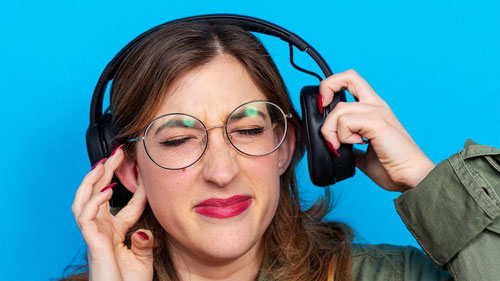Children, teenagers, and young adults listen to many hours of music per day at volumes exceeding the globally recommended public health limit. There are ways to set healthy noise limits and protect your hearing.
Cranking up your earbuds as you listen to music or a podcast might be your favorite form of self-care.
However, it might not be the best for your hearing. According to recent analysis, high levels of noise can affect hearing loss in the future.
Children, teens, and young adults may be particularly at risk if they often listen to many hours of music per day at volumes exceeding the public health limit of 70 decibels of average leisure noise exposure per day that’s recommended by The National Institutes of Health (NIH).
The World Health Organization (WHO)Trusted Source estimates that around 50 percent of people ages 12 to 35 are at risk of hearing loss due to prolonged and excessive exposure to loud sounds, such as music heard through personal audio devices.
“I think on a broader level, the medical and audiology communities, as well as the general public, don’t understand that significant hearing loss is not part of normal healthy aging, but largely represents noise-induced hearing loss,” Dr. Daniel Fink, board chair of the Quiet Coalition, told Healthline.
He compares this misunderstanding to the misconception that deep wrinkles and skin pigmentation are part of normal aging, whereas they largely represent solar or UV damageTrusted Source.
“Similarly, without exposure to loud noise, we should be able to hear well into old age, something generally not true in industrialized societies,” said Fink.
Fink and audiologist Jan Mayes reviewed and integrated information from multiple articles in multiple disciplines to form conclusions about personal audio system usage.
A key takeaway was that people who use personal audio systems (also called personal listening devices or music players) linked to headphones or earbuds — so the content can be heard without disturbing others — are damaging their hearing.
“Especially for young people… personal audio system use is the major source of leisure noise exposure,” said Fink.
“[When] they reach mid-life, probably in their early to mid-40s, they will be as hard of hearing as their grandparents are now in their 70s and 80s.”In addition to losing some ability to communicate, hearing loss has been connected to cognitive decline.
According to a 2011 studyTrusted Source, compared to people without hearing loss, those who had hearing loss were at risk for developing dementia in the following ways: people with mild hearing loss had nearly twice the risk of developing dementia.










